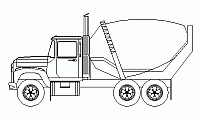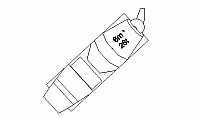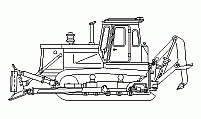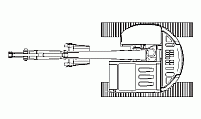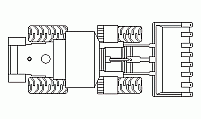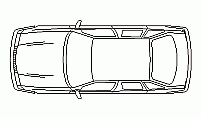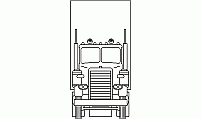CAD Blocks categories
 3D models
3D models home furniture
home furniture sanitary ware - bathrooms
sanitary ware - bathrooms professional equipment
professional equipment doors and windows
doors and windows people and animals
people and animals plants and trees
plants and trees vehicles - transports
vehicles - transports architectural details
architectural details mechanical - electrical
mechanical - electrical urban planning - civil works
urban planning - civil works safety health construction
safety health construction accessible design
accessible design drawing sheet
drawing sheet signals
signals construction machinery
construction machinery accessories and objects
accessories and objects maps and street maps
maps and street maps
Backhoe Loader CAD Block DWG
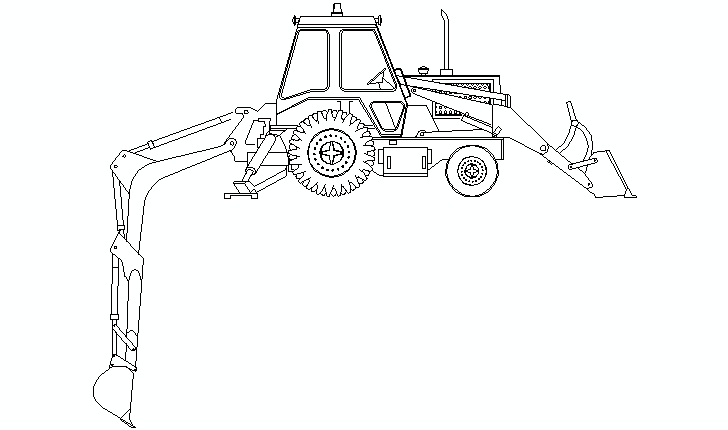
size: 37 kb
category: construction machinery
description: Backhoe Loader in side elevation view
file extension: .dwg CAD - AutoCAD software
Detailed Insights into Backhoe Loaders for CAD Designs
What is a Backhoe Loader?
The backhoe loader is a versatile piece of heavy equipment, widely recognized for its dual functionality. It features a front loader for scooping and lifting, and a backhoe for digging and trenching tasks. Known in some regions as a loader backhoe, this machinery combines power and precision, making it indispensable in construction and landscaping projects. Its key components include the front bucket, rear arm, hydraulic system, and a compact chassis that ensures maneuverability in tight spaces.
Standard Dimensions of Backhoe Loaders
Typical backhoe loaders have front bucket widths of 80 inches (2.03 meters) to 96 inches (2.44 meters) and digging depths up to 14 feet (4.27 meters). The overall height often measures around 12 feet (3.66 meters), providing an optimal balance between power and size. These dimensions ensure adaptability for various construction and excavation needs.
Load Capacities and Hydraulic Power
Backhoe loaders typically have a front bucket capacity ranging from 1 cubic yard (0.76 cubic meters) to 2.5 cubic yards (1.91 cubic meters). The rear backhoe can lift up to 4,000 lbs (1,814 kg) and dig with hydraulic forces exceeding 10,000 lbs (4,535 kg), depending on the model. Variants are available for light-duty, standard-duty, and heavy-duty projects, ensuring compatibility with diverse workloads.
Applications and Advantages of Backhoe Loaders
The main uses of backhoe loaders include:
- Digging trenches for utility installations.
- Loading and transporting materials on construction sites.
- Demolishing small structures with the backhoe arm.
Advantages of this equipment include its compact size, adaptability to urban and rural sites, and ability to switch quickly between tasks. Attachments like augers, breakers, and compactors further expand its functionality.
Safety Guidelines for Backhoe Loader Operation
To operate a backhoe loader safely, follow OSHA regulations and site-specific protocols. Conduct daily inspections of the hydraulic systems, tires, and controls. Always wear protective equipment, including a helmet and gloves, and maintain a safe distance from power lines and unstable ground. Training on load limits and proper attachment use is essential to prevent tipping or equipment damage.
Types of Backhoe Loaders Available
Available options include compact backhoe loaders for urban construction, mid-sized models for general-purpose use, and heavy-duty loaders for demanding excavation projects. Variations in horsepower, bucket size, and hydraulic output allow users to select the ideal model for their specific needs, ensuring maximum efficiency on the job site.



